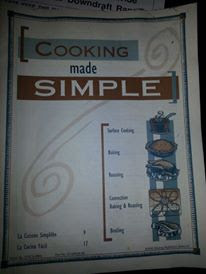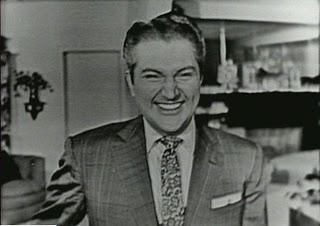Bruce Springsteen's Tribute on Pete Seeger's 90th Birthday
Celebrating Pete Seeger on Democracy Now! Amy Goodman devoted today's show (May 4, 2009) to Pete Seeger and the 90th birthday tribute at Madison Square Gardens yesterday. Bruce Springsteen's opening comments were eloquent and moving. This is the transcript, but you can watch the video by clicking the link above.

Also on the program, sharing their thoughts about Pete Seeger, were Joan Baez, Steve Earle, Ani DiFranco, Dar Williams, Billy Bragg, Tim Robbins, Hip-hop artist Michael Franti, Sweet Honey in the Rock founder Bernice Johnson Reagon, and Rage Against the Machine guitarist Tom Morello.

BRUCE SPRINGSTEEN: As Pete and I traveled to Washington for President Obama’s inaugural celebration, he told me the—he told me the entire story of “We Shall Overcome,” how it moved from a labor movement song and, with Pete’s inspiration, had been adopted by the civil rights movement.In his interview with Amy Goodman in 2004, Pete Seeger provided a compelling image to describe the long-term change that can be brought about by the collective grassroots efforts we all can make.
And that day, as we sang “This Land Is Your Land,” I looked at Pete. The first black president of the United States was seated to his right. And I thought of—I thought of the incredible journey that Pete had taken. You know, my own growing up in the ’60s, a town scarred by race rioting, made that moment nearly unbelievable. And Pete had thirty extra years of struggle and real activism on his belt. He was so happy that day. It was like, Pete, you outlasted the bastards, man. You just outlasted them. It was so nice. It was so nice.
At rehearsals the day before, it was freezing. It was like fifteen degrees. And Pete was there, he had his flannel shirt on. I said, “Man, you better wear something besides that flannel shirt!” He says, “Yeah, I’ve got my long johns on under this thing.” I said—and I asked him, I said, “How do you want to approach ‘This Land Is Your Land’?” as it’d be near the end of the show. And all he said was, “Well, I know I want to sing all the verses. You know, I want to sing all the ones that Woody wrote, especially the two that get left out, you know, about private property and the relief office.” And I thought, of course, you know, that’s what Pete’s done his whole life: he sings all the verses all the time, especially the ones that we’d like to leave out of our history as a people, you know?
At some point—at some point, Pete Seeger decided he’d be a walking, singing reminder of all of America’s history. He’d be living archive of America’s music and conscience, a testament of the power of song and culture to nudge history along, to push American events towards more humane and justified ends. He would have the audacity and the courage to sing in the voice of the people.
Now, despite Pete’s somewhat benign grandfatherly appearance, you know, he is a creature of a stubborn, defiant and nasty optimism. He carries—inside him, he carries a steely toughness that belies that grandfatherly facade, and it won’t let him take a step back from the things he believes in.
At ninety, he remains a stealth dagger through the heart of our country’s illusions about itself. Pete Seeger still sings all the verses all the time, and he reminds us of our immense failures, as well as shining a light towards our better angels in the horizon, where the country we’ve imagined and hold dear, we hope, awaits us. And on top of it, he never wears it on his sleeve. He’s become comfortable and casual in this immense role. He’s funny and very eccentric.
The song that—I’m going to bring Tommy out. And the song Tommy Morello and I are about to sing, I wrote it in the mid-’90s, and it started as a conversation I was having with myself. It was an attempt to regain my own moorings. And its last verse is the beautiful speech that Tom Joad whispers to his mother at the end of The Grapes of Wrath. It says, “Wherever there’s a cop beating a guy, wherever a hungry newborn baby cries, wherever there’s a fight against the blood and the hatred in the air, look for me, Mom. I’ll be there.” Well, Pete has always been there.
PETE SEEGER: I honestly believe that the future is going to be millions of little things saving us. I imagine a big seesaw, and at one end of this seesaw is on the ground with a basket half-full of big rocks in it. The other end of the seesaw is up in the air. It’s got a basket one-quarter full of sand. And some of us got teaspoons, and we’re trying to fill up sand. A lot of people are laughing at us, and they say, “Ah, people like you have been trying to do that for thousands of years, and it’s leaking out as fast as you’re putting it in.” But we’re saying, “We’re getting more people with teaspoons all the time.” And we think, “One of these years, you’ll see that whole seesaw go zooop in the other direction.” And people will say, “Gee, how did it happen so suddenly?” Us and all our little teaspoons. Now granted, we’ve got to keep putting it in, because if we don’t keep putting teaspoons in, it will leak out, and the rocks will go back again. Who knows?The election of Obama four years later seems to me to be just such a zooop.
Also on the program, sharing their thoughts about Pete Seeger, were Joan Baez, Steve Earle, Ani DiFranco, Dar Williams, Billy Bragg, Tim Robbins, Hip-hop artist Michael Franti, Sweet Honey in the Rock founder Bernice Johnson Reagon, and Rage Against the Machine guitarist Tom Morello.





Comments